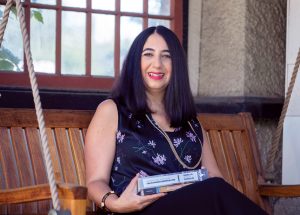We asked Assistant Professor of Feminist and Gender Studies Nadia Guessous
“What’s on Your Reading List?”
I am currently reading two books that propose ways of challenging the hegemony and seeming inevitability of imperialism and war: Ariella Aisha Azoulay’s “Potential History: Unlearning Imperialism” and Ronak K. Kapadia’s “Insurgent Aesthetics: Security and the Queer Life of the Forever War.” Although they intervene in different disciplinary debates and analyze different types of materials (history, archives, photography, museums, and political concepts in the case of Azoulay; insurgent aesthetics, U.S. militarism, and the war on terror in the case of Kapadia), it is interesting to read these two works together because of their shared commitment to rejecting/undoing the taxonomies of imperialism and to imagining the world otherwise. Through what she calls a “potential history,” Azoulay refuses the sense of closure and irreversibility that is ascribed to the past as well as the sense of hope and promise that is teleologically invested in the new. Instead, she calls for a “form of being with others, both living and dead, across time, against the separation of the past from the present, colonized peoples from their worlds and possessions, and history from politics” (2019: 43) that seeks to reclaim the forgotten and abandoned potentialities of what was once made past. While Azoulay argues that the universalizing language of art erases the imperial histories of plunder and violence that enable such categorizations, it is in the “insurgent aesthetics” of Arab, Muslim, and South Asian diasporic artists that Kapadia finds “a queer calculus of U.S. empire that makes intimate what is rendered distant, renders tactile what is made invisible, and unifies what is divided, thereby conjuring forms of embodied critique that can envision a collective world within and beyond the spaces of US empire’s perverse logics of global carcerality, security and war” (2019: 10). Together these books invite us to think, feel, sense, and remember otherwise and to orient our ways of knowing (and therefore of being) away from the epistemological and sensorial regimes of empire. As a transnational and postcolonial feminist teacher-scholar committed to the project of decolonizing the academy, these are invitations that I take very seriously and sensibilities that I seek to cultivate in all my work.
